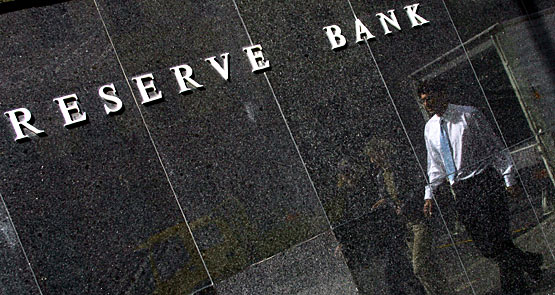
Rate cut, what rate cut? The Reserve Bank ended 2015 more confident about the economy than it started. The economy is burbling in low gear, but not fading; employment is much stronger than anyone thought; the terms-of-trade collapse is continuing; the mining investment-boom collapse is continuing; banks have put up mortgage rates; the housing boom is continuing, without a bubble; household consumption is solid; car sales are at near-record levels; inflation remains low, real wage growth is none existent; unit labour costs are under control; business profits rising; shareholders are being paid billions by cash-heavy companies to shut them up and stop them moaning.
All this for an economy that was in dire straits and in need of more rate cuts and attention, with all sorts of busts, “income recessions”, forecasts of collapses (property, household debt) from economists and others far and wide and with access to email, a spreadsheet and the internet. These dominated the pages of the Financial Review, the Oz and the Fairfax semi-tabloids, and nothing happened except the economy slowly improved. Yes, the federal budget is in trouble and reform is needed, especially on the revenue side, and while we are not out of the woods yet — and won’t be for a year or more — the economy is in pretty fine fettle with a month to go in the year. — Glenn Dyer
Wrong, wrong, wrong. As today’s third-quarter national accounts showed, growth is solid. So it’s no wonder the Aussie dollar bounced over 73 US cents last night for the first time in months. It hit a five- to six-year low of 68.96 cents in September. The RBA is looking to the US rate rise to change that tone, but will it? All this though, and not a need for another rate cut in the back half of the year, as the continuing chorus of business economists from banks, investors, think tanks, etc, claimed would be needed (you know who you are; why not admit you got it wrong?). — Glenn Dyer
BHP as a scapegoat. The Samarco dam disaster in Brazil is damaging for all concerned: BHP Billiton, Vale, the local people and the environment, but it is a godsend for the country’s President, Dilma Rousseff, who is facing a deepening recession and a growing corruption scandal that has already resulted in the country’s biggest banker being arrested, along with a senior politician from her ruling party, the heads of major construction companies and a host of other influential political and business officials.
The dam disaster has allowed the President to buy time and divert attention from her problems and those of her government and to parade as the country’s champion, promising to pursue a A$7.2 billion legal action against BHP and Vale, which own Samarco. Overnight the economic problems for the President deepened when the third-quarter growth report showed the economy shrank 1.7% in the September quarter from the three months to June. It was the third quarterly contraction in a row and Brazil is now in the midst of its worst recession since The Great Depression as the economy was 4.5% smaller in the September quarter than the same three months of 2014. Coming on top of the corruption scandal, it’s no wonder there are calls for the impeachment of the President. — Glenn Dyer
Car wash or laundry? The scandal is called the “Car Wash” investigation and it is probing corruption at Petrobras, the huge state-owned oil company, which has brought Brazilian politics and business to a halt, especially in the oil, gas, mining construction and associated industries as billions of dollars in corrupt payments to politicians are traced out of Petrobras and associated companies by teams of investigators aided by a key whistleblower. Last weekend, Andre Esteves, the CEO and major shareholder in Brazil’s biggest investment bank, BTG Pactual, was arrested in a raid. He and his bank (its Brazil’s equivalent of our Macquarie Group/Bank, and is highly influential) were very close to Petrobras.
The budget deficit is out of control and inflation remains high and now the economy is falling into a black hole. And along comes BHP and its partner, the semi-state-owned Vale, with the dam disaster. A godsend that is enabling the President to posture about taking on big business, while avoiding questions about the relationship she, her party and her predecessor as president had with big business and the multibillion-dollar trail of corrupt payments. Now more and more economists are warning the combination of the slowdown, the political crisis, deficit and high inflation could lead Brazil deeper into recession or even a depression in the next year. The President is powerless, even on the dam disaster which will almost certainly result in a negotiated settlement. — Glenn Dyer







Crikey is committed to hosting lively discussions. Help us keep the conversation useful, interesting and welcoming. We aim to publish comments quickly in the interest of promoting robust conversation, but we’re a small team and we deploy filters to protect against legal risk. Occasionally your comment may be held up while we review, but we’re working as fast as we can to keep the conversation rolling.
The Crikey comment section is members-only content. Please subscribe to leave a comment.
The Crikey comment section is members-only content. Please login to leave a comment.